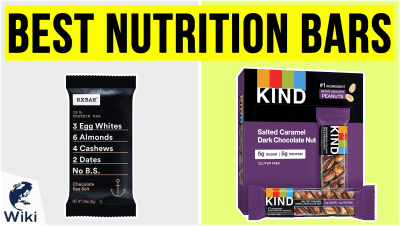6 Organizations Tackling Pressing Social Issues
From homelessness to sexual violence and systemic racism, there are a litany of troubling issues that plague our society. The organizations here are among those combating such rampant social ills, using education, political advocacy, and community services to work toward a world where everyone is treated with equality and respect. This video was made with Ezvid Wikimaker.
6 Groups Fighting for Human & Civil Rights
| Organization | Mission |
|---|---|
| YWCA Spokane | Eliminate racism, empower women, and promote peace, justice, freedom, and dignity for all |
| The Greater Cincinnati Homeless Coalition | Eradicate homelessness with respect for the dignity and diversity of the membership, people experiencing homelessness, and the community |
| Survived & Punished | Raise awareness about the integrated relationship between systems of punishment and the pervasiveness of gender violence, and initiate mass defense projects that will free all survivors |
| Crossroads Urban Center | Assist and organize Utahns with low incomes, those with disabilities, and people of color to meet basic survival needs, and address essential issues affecting quality of life |
| The Mosaic Institute | Bring together people, communities, and nations to advance pluralism and reduce conflict |
| Seattle/King County Coalition on Homelessness | Advance reasonable solutions and solid program models, protect and strengthen the civil rights and dignity of people who are homeless and poor, and accomplish legislative victories that promote housing, human services, and the public good |
The Work of the Greater Cincinnati Homeless Coalition
Items Homeless Shelters Need
All shelters are different, and you should always check the organization's guidelines before you donate (some cannot accept used clothes while others can, for example) but here are some items that are most commonly needed. If you can afford to, consider picking some up and donating them to an organization that works with the homeless:
- Toiletries, especially travel-sized
- Feminine hygiene products
- Razors
- Baby wipes
- Socks
- Underwear
- Diapers
- First aid kits
- Blankets
- Clothes
- Hand warmers
Intimate Partner Violence Statistics
- 35.6% of women and 28.5% of men in the U.S. report having experienced rape, physical violence, and/or stalking by an intimate partner in their lifetime
- Nearly 20 people per minute are physically abused by an intimate partner in the United States
- Women with disabilities have a 40% greater risk of intimate partner violence than women without disabilities
- Approximately 63% of homeless women have experienced domestic violence
- A woman is assaulted in the U.S. every 9 seconds
- Domestic violence is the leading cause of injury to women
- Men who witnessed domestic violence as children were twice as likely to abuse their own wives than sons of nonviolent parents
- From 1994 to 2010, roughly 4 in 5 victims of intimate partner violence were female
- 1 in 5 teenage girls said they have been in a relationship where the boyfriend threatened violence or self-harm if a breakup was to occur
- Since 2003, 18,000 women have been killed by men in domestic violence disputes
An Overview of the Mosaic Institute
In Depth
It seems today there are more social justice issues than ever before. From women's rights to homelessness, people are feeling empowered to take a stand for the issues they truly believe in. While large organizations take the federal government head on, all social movements begin at the grassroots level, initially making changes to municipal policy. In no particular order, here are some organizations making a difference at the local level.
Coming in at #1 is YWCA Spokane, the oldest and largest women's organization in the world. The group is dedicated to eliminating racism, empowering women, and promoting peace, justice, freedom, and dignity for all. To achieve this, it harnesses the potential of every woman in order to bring about real change in the fight for gender equality and racial justice.
YWCA Spokane consists of three umbrella initiatives: the Alternatives to Domestic Violence Program, the Women's Opportunity Center and Children's Services, which includes Child Advocacy, and the Early Childhood Education and Assistance Program. Together, these provide resources for domestic violence survivors, support for economic advancement of women and kids, and educational and support services for youth.
YWCA Spokane consists of three umbrella initiatives: the Alternatives to Domestic Violence Program, the Women's Opportunity Center and Children's Services, which includes Child Advocacy, and the Early Childhood Education and Assistance Program.
Next up on our list at #2 is the Greater Cincinnati Homeless Coalition, a unified social action agency, committed to the ultimate goal of eradicating homelessness. The Coalition provides a space for information sharing and collaboration between those who are housing insecure, advocates, and social service providers. This gives individuals and organizations the ability to address the problems that are confronting the community.
The Greater Cincinnati Homeless Coalition breaks up its work into four areas of focus. These include: Coordination of Services, Advocacy, Education, and Streetvibes, a bi-weekly newspaper produced by the organization. Together, these areas of work spread awareness about the issues facing the homeless population, allowing organizations to better connect with individuals experiencing homelessness while ensuring their rights are not violated by public policy or the community at large.
At #3 is Survived & Punished, a prison abolition organization comprised of survivors, organizers, victim advocates, legal advocates and attorneys, policy experts, scholars, and currently and formerly incarcerated people. The organization bases its work around the idea that prisons and all forms of law enforcement are rooted in systems of violence, including racial, anti-trans and queer, sexual, and domestic abuse.
The organization bases its work around the idea that prisons and all forms of law enforcement are rooted in systems of violence, including racial, anti-trans and queer, sexual, and domestic abuse.
S&P demands the immediate release of survivors of domestic, sexual, and gender violence who are imprisoned for survival actions when confronting forms of abuse. These include self-defense, "failure to protect," migration, removing children from abusive people, being coerced into acting as an "accomplice," and securing resources needed to survive. Additionally, Survived & Punished provides information and strategies to victims experiencing criminalization.
#4 on the list is Crossroads Urban Center, a multi-faith, community-based project that seeks to assist disadvantaged people in the state of Utah. The Urban Center focuses on individuals with low income, those with disabilities, and people of color who might be struggling to meet basic survival needs. Crossroads has broad support from many religious communities as well as businesses, individuals, and foundations.
The organization offers many services, including Crossroads' Emergency Food Pantry, which distributes boxes of food to hungry individuals. The Thrift Store issues vouchers to low income people that can be exchanged for clothing and household essentials at no cost to them. Additionally, the organization facilitates political advocacy groups in bringing together community members interested in working toward a system that aligns with the needs of the people.
The Thrift Store issues vouchers to low income people that can be exchanged for clothing and household essentials at no cost to them.
The Mosaic Institute, #5 on our list, is a think tank that brings together people, communities, and nations in an effort to advance pluralism and reduce conflict by breaking down prejudgments and encouraging new social habits. The Canada-based organization is committed to creating a nation without prejudice where differences are embraced and seen as the solution, not the problem.
The Institute deploys programs that develop the skills and qualities of youth to become the next generation of leaders in inclusion and pluralism. Through public events and engagement, the Mosaic Institute seeks to raise the level of discourse on issues related to conflict, our responsibilities toward one another, and our legitimate expectations of one another.
Last on the list at #6 is the Seattle/King County Coalition on Homelessness. The organization works to advance reasonable solutions and comprehensive program models that protect the dignity and civil rights of individuals who are homeless. Further, the Coalition hopes to accomplish legislative victories that promote housing, human services, and the overall public good.
The organization works to advance reasonable solutions and comprehensive program models that protect the dignity and civil rights of individuals who are homeless.
The Coalition employs several projects that work toward its ultimate goal. Project Cool assists displaced students with acquiring school supplies, while the Homeless Voter Registration and Education program ensures that every eligible voter can register. Additionally, the Policy Advocacy & Public Education program identifies key issues to help influence county officials in supporting legislation that promotes welfare for the homeless.

















